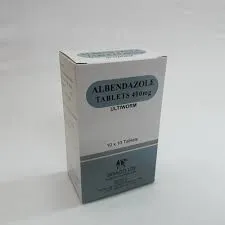- Afrikaans
- Albanian
- Amharic
- Arabic
- Armenian
- Azerbaijani
- Basque
- Belarusian
- Bengali
- Bosnian
- Bulgarian
- Catalan
- Cebuano
- Corsican
- Croatian
- Czech
- Danish
- Dutch
- English
- Esperanto
- Estonian
- Finnish
- French
- Frisian
- Galician
- Georgian
- German
- Greek
- Gujarati
- Haitian Creole
- hausa
- hawaiian
- Hebrew
- Hindi
- Miao
- Hungarian
- Icelandic
- igbo
- Indonesian
- irish
- Italian
- Japanese
- Javanese
- Kannada
- kazakh
- Khmer
- Rwandese
- Korean
- Kurdish
- Kyrgyz
- Lao
- Latin
- Latvian
- Lithuanian
- Luxembourgish
- Macedonian
- Malgashi
- Malay
- Malayalam
- Maltese
- Maori
- Marathi
- Mongolian
- Myanmar
- Nepali
- Norwegian
- Norwegian
- Occitan
- Pashto
- Persian
- Polish
- Portuguese
- Punjabi
- Romanian
- Russian
- Samoan
- Scottish Gaelic
- Serbian
- Sesotho
- Shona
- Sindhi
- Sinhala
- Slovak
- Slovenian
- Somali
- Spanish
- Sundanese
- Swahili
- Swedish
- Tagalog
- Tajik
- Tamil
- Tatar
- Telugu
- Thai
- Turkish
- Turkmen
- Ukrainian
- Urdu
- Uighur
- Uzbek
- Vietnamese
- Welsh
- Bantu
- Yiddish
- Yoruba
- Zulu
డిసెం . 09, 2024 19:42 Back to list
Exploring the Applications and Benefits of Lincomycin HCl Monohydrate in Medicine
Lincomycin HCl Monohydrate Uses and Applications
Lincomycin HCl monohydrate is an important antibiotic that belongs to the lincosamide class of antimicrobial agents. It is primarily used to treat various bacterial infections, particularly those caused by anaerobic bacteria and certain strains of Gram-positive cocci. The compound exerts its antibacterial effects by inhibiting protein synthesis in bacteria, thereby preventing them from growing and multiplying. Given its unique mechanism of action, lincomycin has a range of uses that are noteworthy in both clinical settings and veterinary medicine.
Clinical Uses of Lincomycin HCl Monohydrate
One of the most significant applications of lincomycin HCl is in the treatment of serious infections caused by susceptible bacteria. This includes infections of the skin, soft tissues, respiratory tract, bones, and joints. Lincomycin is particularly effective against staphylococci and streptococci, which are common culprits in various infections. The drug is often reserved for patients who are allergic to penicillin or when penicillin is ineffective.
In cases of severe pneumonia, especially those caused by anaerobic bacteria in aspiration pneumonia, lincomycin is a valuable therapeutic agent. The drug is often administered intravenously for hospital settings, ensuring rapid and effective treatment for critically ill patients. Lincomycin's ability to penetrate well into bone and tissue makes it an excellent choice for osteomyelitis, a painful bone infection that requires robust and prolonged antibiotic treatment.
Additionally, lincomycin can be beneficial in treating certain dental infections. Dental professionals may prescribe this antibiotic for patients who have abscesses or infections that are resistant to other standard treatments. By effectively targeting the offending bacteria, lincomycin aids in resolving these infections, thereby preventing complications.
Veterinary Uses
lincomycin hcl monohydrate uses

Beyond human medicine, lincomycin HCl monohydrate finds its applications in veterinary medicine. It is commonly used to treat infections in livestock and pets. For example, lincomycin is administered to pigs to combat pneumonia and lethal infections often associated with respiratory diseases. In cattle, it is employed to treat various infections and is included in some formulations aimed at improving overall animal health.
The use of lincomycin in pigs is particularly notable due to its effectiveness against swine respiratory disease, a condition that can lead to devastating consequences in the livestock industry. Antibiotics like lincomycin help maintain animal health, ensuring productivity and efficient growth rates.
Side Effects and Considerations
While lincomycin HCl monohydrate is a powerful antibiotic, it is essential to consider the potential side effects. Patients taking lincomycin may experience gastrointestinal disturbances, such as diarrhea, nausea, or abdominal pain. In some cases, it may lead to Clostridium difficile-associated diarrhea, a serious condition that requires immediate medical attention. Therefore, healthcare professionals must weigh the benefits of using lincomycin against the risks associated with its use.
Given the increasing prevalence of antibiotic resistance, careful consideration must be given to the prescribing of lincomycin. As a broad-spectrum antibiotic, it is essential to use it judiciously to avoid contributing to the resistance problem. Culture and sensitivity tests are often recommended to ensure that the bacteria causing the infection are susceptible to lincomycin before starting treatment.
Conclusion
In summary, lincomycin HCl monohydrate serves as an essential antibiotic in both human and veterinary medicine. Its effectiveness against a variety of infections, particularly anaerobic and Gram-positive bacteria, underscores its significance. However, as with any antibiotic, responsible use and awareness of potential side effects are crucial in maintaining its efficacy and mitigating risks associated with its use. Whether in treating serious bacterial infections or supporting animal health, lincomycin plays a vital role in modern medicine.
-
Guide to Oxytetracycline Injection
NewsMar.27,2025
-
Guide to Colistin Sulphate
NewsMar.27,2025
-
Gentamicin Sulfate: Uses, Price, And Key Information
NewsMar.27,2025
-
Enrofloxacin Injection: Uses, Price, And Supplier Information
NewsMar.27,2025
-
Dexamethasone Sodium Phosphate Injection: Uses, Price, And Key Information
NewsMar.27,2025
-
Albendazole Tablet: Uses, Dosage, Cost, And Key Information
NewsMar.27,2025













